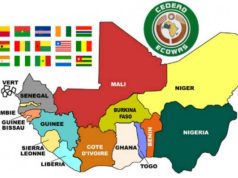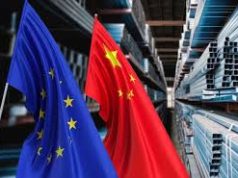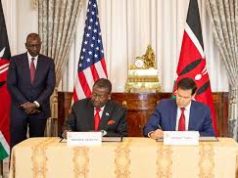Africa is poised for stronger-than-expected economic momentum in 2025, as new data from the World Trade Organization (WTO) reveals a significant upward revision in its trade outlook. In its latest Global Trade Outlook and Statistics report, the WTO now projects African trade growth 2025 to outpace earlier forecasts, with merchandise exports expected to rise by 5.3% and imports surging by 11.8%—the fastest import growth of any region globally.
This sharp improvement marks a dramatic turnaround from the April forecast, which predicted only 0.6% export growth and 6.5% import expansion. At the time, global trade tensions—sparked by renewed U.S. tariff hikes under President Donald Trump—had raised fears of deepening fragmentation, particularly impacting developing economies’ access to advanced markets. However, stronger-than-anticipated economic activity across Africa and other regions during the first half of 2025 prompted the WTO to revise its projections upward for all continents.
Africa’s projected 11.8% import growth reflects a broad-based recovery in domestic demand, driven by economic rebound, industrial development, and rising consumer confidence. Imports of electronics, machinery, vehicles, and consumer goods are fueling the surge, signaling increased investment and consumption across both public and private sectors. This performance positions Africa ahead of Asia (projected at +5.7%) and South America (+8.8%), underscoring the continent’s growing integration into global supply chains despite persistent challenges such as political instability, post-pandemic recovery gaps, and commodity price volatility.
Yet while goods trade strengthens, Africa continues to lag in services—a sector where global trade is accelerating due to digital transformation and demand for AI-related capabilities. The WTO forecasts African services exports to grow just 1.3% in 2025, down from 4.9% in 2024, before modestly recovering to 2.1% in 2026. This compares with a global average of 4.6% in 2025 and 4.4% in 2026. The slower pace highlights structural gaps in digital infrastructure, regulatory frameworks, and cross-border service delivery.
Nonetheless, countries investing heavily in digitalization—such as Kenya, Nigeria, and Egypt—are emerging as regional leaders in telecommunications, financial technology, and IT-enabled services. These nations are well-positioned to capture greater value in the expanding global digital economy, especially as demand grows for cloud computing, fintech solutions, and remote professional services.
Globally, the WTO expects merchandise trade to expand by 2.4% in 2025—up from an initially projected contraction of -0.2%—before slowing sharply to just 0.5% in 2026. The temporary rebound is attributed to front-loaded imports in North America ahead of anticipated tariffs, improved macroeconomic conditions, and rising demand for AI-driven hardware and semiconductors. However, the organization warns that escalating protectionism, geopolitical uncertainty, and weak productivity gains could constrain long-term trade expansion beyond 2025.
Looking ahead, the WTO anticipates a slowdown in African trade growth 2025 momentum into 2026, with export volumes stagnating and import growth easing to 5.4%. Even at this reduced rate, Africa would still significantly outpace the global average of 0.5%, reinforcing the continent’s role as one of the few bright spots in a fragile international trade environment.
These figures highlight both opportunity and urgency: while Africa’s rising import demand signals economic vitality, the imbalance between goods and services trade underscores the need for deeper reforms, enhanced connectivity, and targeted investments in digital infrastructure. For policymakers and investors alike, the message is clear—the continent’s trade trajectory is improving, but sustained progress will depend on building competitive, diversified, and future-ready economies.
Follow us on Instagram.
https://www.instagram.com/businessnewsng?igsh=ZXpweTdjOGF1ZXdu
























